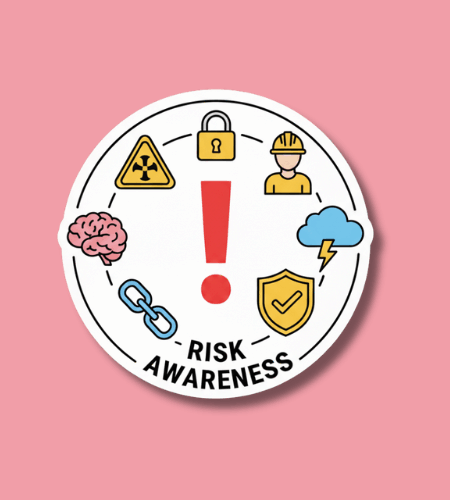Risk Awareness Week is an event usually held in October, bringing together professionals, practitioners, and organizations to focus on understanding, managing, and communicating risk in business, finance, governance, and decision-making. The week emphasizes that risk is not just a problem to avoid but a factor to integrate intelligently into strategy and operations.
The 2025 edition is scheduled for October 13–17. Over the years it has grown in scale: in 2024, over 20,000 risk professionals from more than 120 countries took part.
History of Risk Awareness Week
Risk Awareness Week (often abbreviated RAW) is a modern, professional observance rather than a long-standing public holiday. It is organized as a virtual conference and training program, offering workshops, case studies, and networking opportunities for risk and decision professionals worldwide.
Organizations such as FERMA (the Federation of European Risk Management Associations) have recognized RAW’s contribution—the event was awarded “Training & Education Programme of the Year” in 2024 for its role in raising awareness and building risk capacity globally.
Why is Risk Awareness Week important?
In many organizations, “risk management” is relegated to compliance checklists or fire-fighting when things go wrong. Risk Awareness Week challenges that mindset by promoting the idea that risk understanding should be a proactive, strategic asset. The week encourages thinking more deeply about uncertainty, resilience, and decision under ambiguity—skills that are increasingly critical in a volatile global environment.
It also fosters a community of learning. Through shared case studies, tools, and discussions, participants can learn from successes and failures in other contexts. This communal exchange helps to elevate risk literacy beyond specialized departments and into governance, operations, and strategic planning.
Here are some themes that are commonly highlighted during Risk Awareness Week
- integrating risk thinking into decision processes
- using data, modeling, and scenario planning to clarify uncertainty
- improving risk communication and bridging the gap between technical experts and leadership
- building organizational cultures that accept prudent risk taking
- learning from real cases to sharpen risk judgment
How to Observe or Participate in Risk Awareness Week
If you work in a field where risk is relevant—finance, operations, strategic planning, project management, compliance—you can use Risk Awareness Week as a moment to upskill. Register for virtual workshops, webinars, or panel discussions offered during the week. Many sessions are recorded and archived for later viewing.
Within your own organization, you might host a “risk lunch & learn,” share a case analysis, or start a “risk thought of the day” email or slack post. Encourage cross-departmental discussions where people outside risk teams can voice concerns or ask how risks affect their work. Use the week as a catalyst to review your risk frameworks, tools, communication practices, or stress-testing processes.
Some practical ideas to engage during the week
- attend or watch sessions on new risk tools, AI in risk, or scenario planning
- facilitate a workshop or roundtable on risk with colleagues
- review your organization’s top risks and refresh how they’re monitored
- share summaries, infographics, or “lessons learned” with your team
- reflect on personal risk judgments—what risks do you take, avoid, misunderstand?
Risk Awareness Week Dates Table
| Year | Date | Day |
|---|---|---|
| 2026 | October 1 | Thursday |
| 2027 | October 1 | Friday |
| 2028 | October 1 | Sunday |
| 2029 | October 1 | Monday |
| 2030 | October 1 | Tuesday |
Subscribe to our newsletter and never miss a holiday again!

